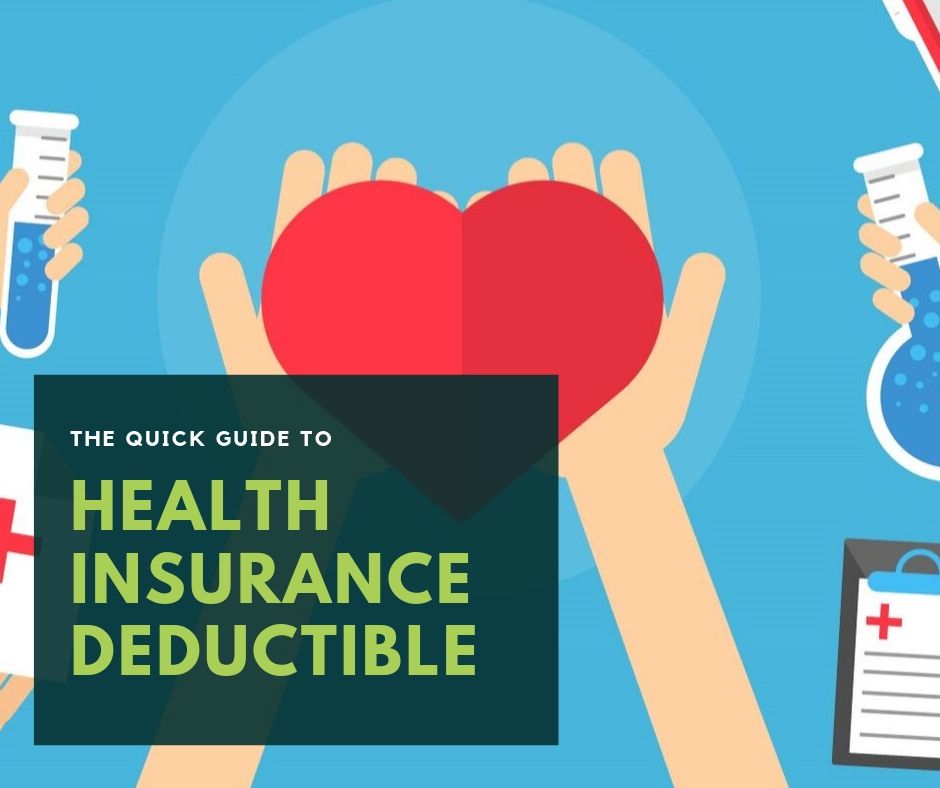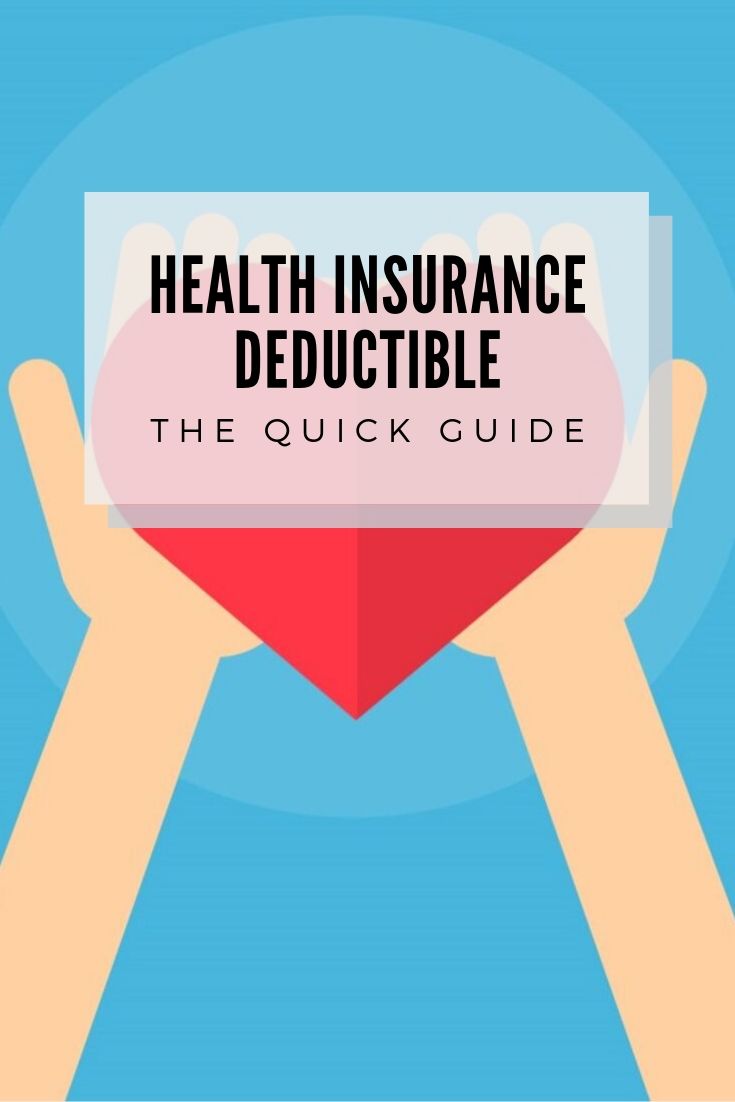Health insurance: one of the biggest stress factors for any American. Get sick and you’re in trouble.
In order to be safe, you’ll need to get insured, but the stress doesn’t end here: what’s a health insurance deductible? What’s a copayment? How can I find a decent health insurance company?
So many questions.
If you want to get scared even more, the insurance companies are not here to spend more money than it’s legally needed, so you’ll have to understand exactly how health insurance works works, so that you benefit from decent healthcare services and not have to sell your house for this.
What is a health insurance deductible?
Simply put, the health insurance deductible is the money you have to pay for your medical services, before your insurance kicks in. One caveat: in most plans you will also have to cover a copayment, which is usually a small sum of money to be paid when getting medical services.
Some health insurance plans come with bigger premiums (the money you pay each month) and smaller deductibles, while others can have bigger deductibles, but smaller premiums.
In this case you’ll save more money each month by not paying a high premium, but, once you do get to the doctor, it’s gonna cost you more.
When you go insurance hunting, you’ll need to take into account the deductibles, premiums, copayments and also your overall health. because all this adds up to how much healthcare will actually cost you.
How health insurance deductibles work
When you sign up for health insurance plan, you’ll have to pay every month a certain fee, which is called a premium. This will allow you to get covered should you need medical attention.
This premium doesn’t cover all your healthcare costs, though, and the insurance will start covering your medical bills only after you pay a certain amount from your own pocket.
The money you pay personally before your health insurance kicks in is called a deductible. It can mean few hundred bucks or few thousands, depending on your health insurance plan.
Once you have met your deductible for this year, you’ll have to pay a coinsurance, until you have reached your out-of-pocket maximum. From this moment on your insurance will pay 100% of all covered medical services.
What is deductible in health insurance with example
- you will have to cover the $1,500 deductible at first.
- then you’ll need to cover $3,500 more to reach your out-of-pocket maximum.
- from this moment on, your insurance should kick in and cover the remainder.
Should you choose a high deductible health insurance?
In theory, a high deductible health insurance might allow you to save money each month by paying a smaller premium, while a low deductible or 0 deductible health insurance means higher premiums.
When it comes to choosing the right insurance plan, you need to take into account:
- how much you usually spend on healthcare on an yearly basis
- if you are pregnant
- if you have health issues that might require more medical attention
- how much risk you are willing to take, should you need to cover a high medical bill.
Let’s see two different situations:
- $300 monthly premium, $10,000 deductible – yearly premium costs: $3,600
- $600 premium, $2,500 deductible – yearly premium costs: $7,200
If you are generally in good health, you might be inclined to go for option 1, as you’d save $3,600 every year on health insurance premiums.
But, say you need a medical procedure that costs $13,000. Here are your 2 options again:
- premium costs $3,600 + $9,400 out of your pocket, since you haven’t met your deductible
- premium costs $7,200 + $2, 500 deductible – your cost is $9,700 – $3,300 is covered by your insurance, since you met your out-of-pocket maximum.
Anyway, this is not an easy decision to make, you will need to look at all the options and see if you can meet a high deductible (thus allowing you to risk a smaller premium) or you should pay a higher premium, to get a better coverage should anything go wrong.
What else should you know about health insurance deductibles:
You might qualify for discounts
Just like with every other ‘purchase’, see if you qualify for a discount. Depending on your income, there might be health insurance discounts available to your and your family.
Choose from few health insurance plans
The marketplace is HUGE and there are so many health insurance options to choose from, that it can easily get overwhelming. Look at one-two low deductible health insurance plans and 1-2 high deductible insurance plans. If you properly set your healthcare budget as well, it will be easier to choose from the plethora of options.
Base your decisions on your current medical costs and also try to anticipate the next year
- if you tend to visit the doctor often, you’ll want to get a higher premium and small deductible. Conversely, if your medical bills are not too big now, you’ll probably look for a small premium, high-deductible option
- prescriptions costs should be taken into account as well, you’re not paying only for the medical services
- if you have kids who are active in sports, budget for 1-2 visits to the emergency room as well
- if you plan on having a child, pregnancy and labor can add up costs over your budget
- many preventive care services are offered for free, under the Affordable Care Act.
Having health insurance will allow you access to discounted medical costs
Just by having a health insurance will lower your medical bills, as hospitals and clinics give discounted services to those who are insured. Your out-of-pocket expenses will be lower, than if you had no insurance. Statistics show that, without insurance, you’d pay even double for the same healthcare services.
Most health insurance plans cover preventive care and allow access to service before meeting the deductible
Preventive care is covered by all marketplace insurance plans (screenings, immunizations etc.) and you get services before you meet the deductible (as opposed to auto insurance, homeowners insurance, renters insurance, where you don’t access the service until you have paid your deductible.
Copayments don’t count towards your health insurance deductible
They do count toward your out-of-pocket expenses, so, once you reached this maximum, the insurance will pay the rest of your medical bill.
There are 0 health insurance deductible plans
It is possible to get a zero-deductible plan, typically HMOs. In most cases these plans come with a high premium, whereas to get a lower premium, you will need to pay a higher deductible. These might work better for people who take medication and have many doctor visits.






